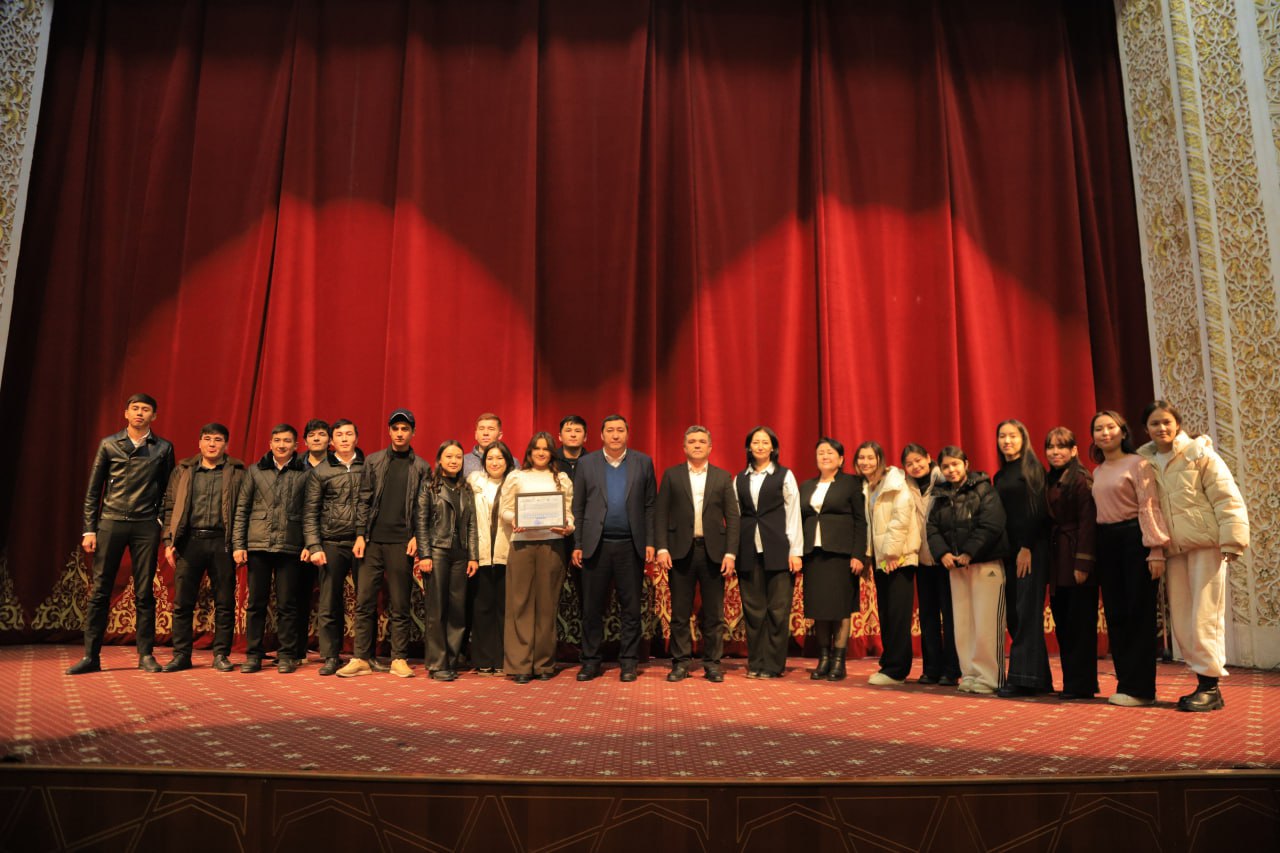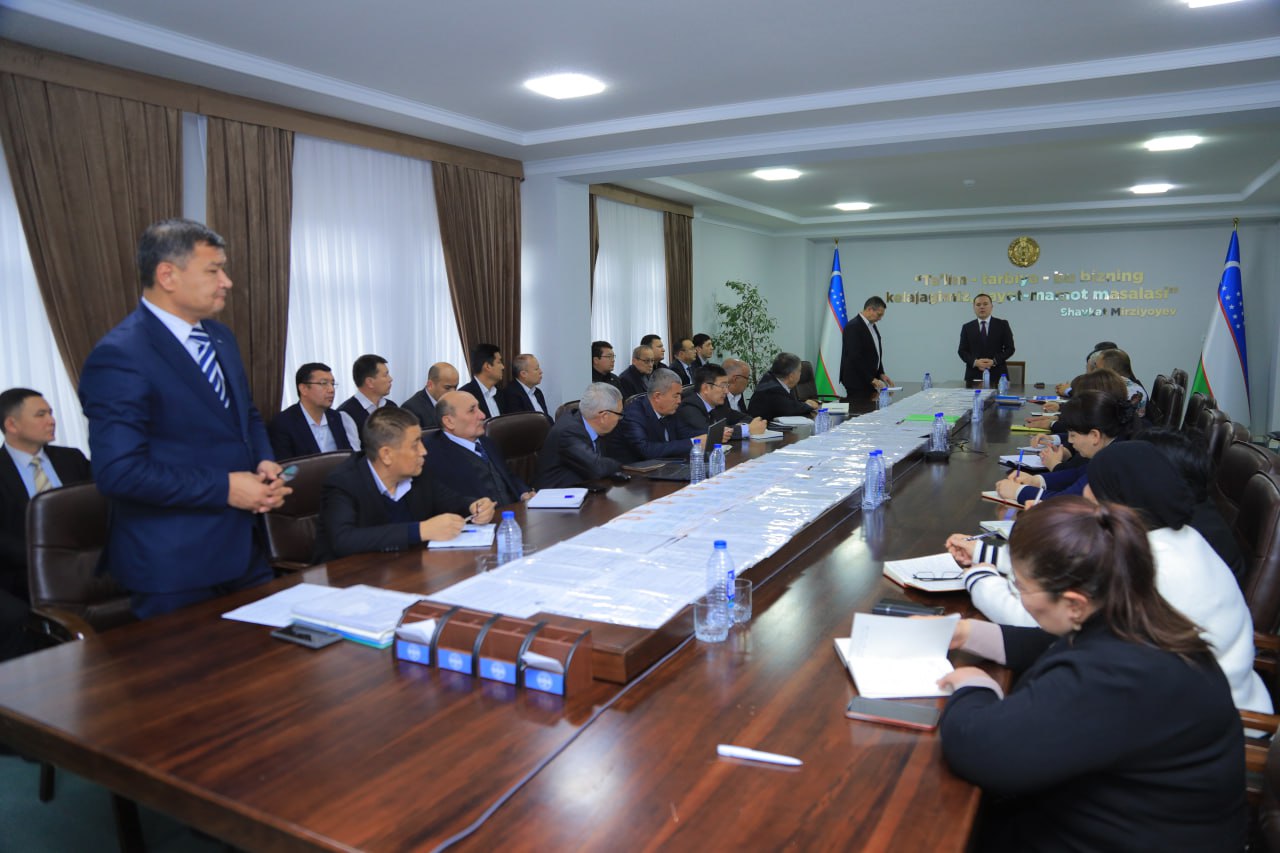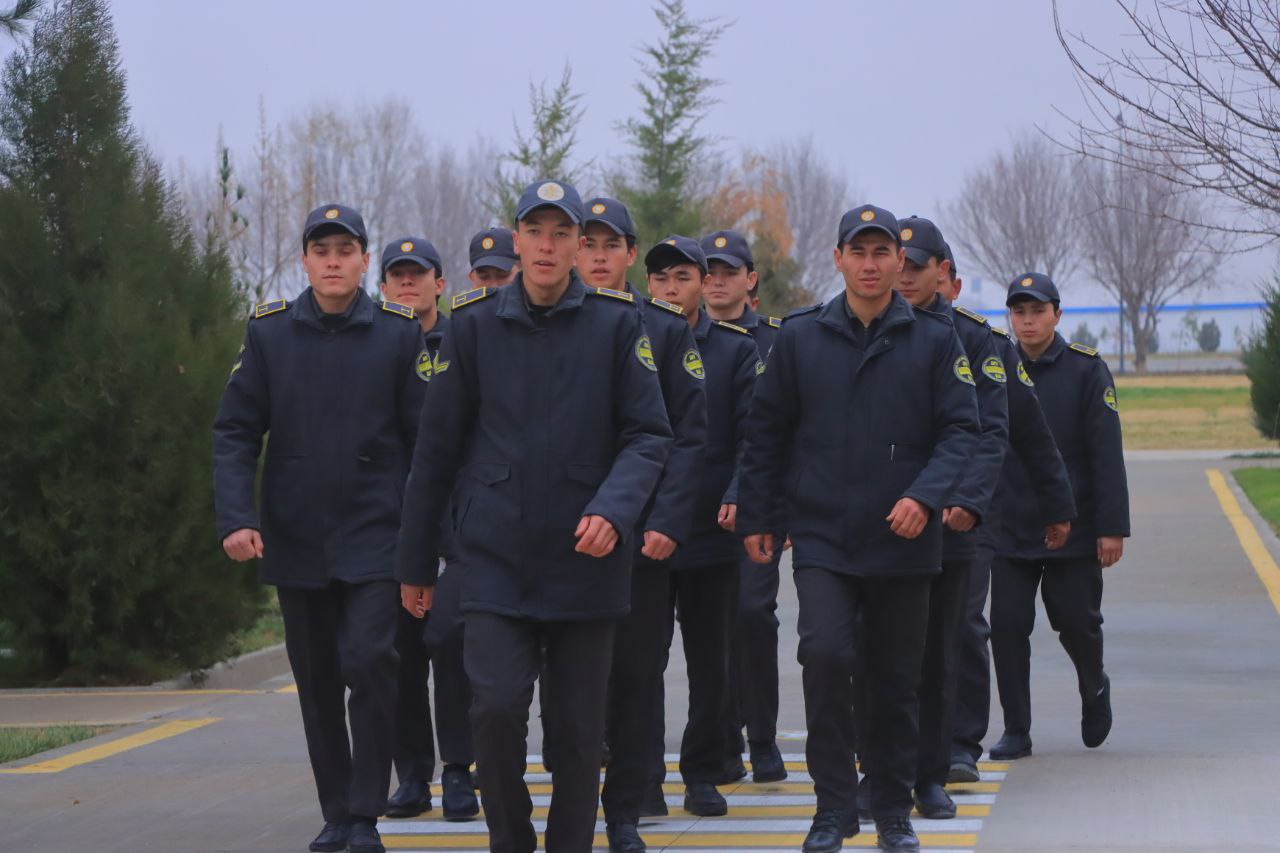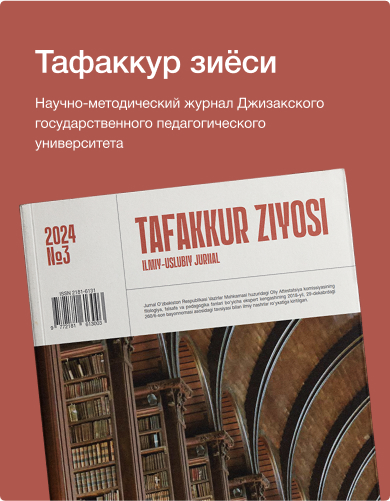Scientific articles
- All
- Eco-active students
- Career Center
- Step into the Future
- Anti-corruption
- Neighborhood and university
- It's a dream come true for teachers
Scientific articles
|
15/03/2022
Print
(O`zbek) THE ROLE OF COMMUNICATIVE COMPETENCE IN TEACHING FOREIGN LANGUAGE FOR PROFESSIONAL PURPOSES
Popular in other categories

The 3rd regional stage of the “Student Theater Studios” festival commenced ceremoniously on December 17 of this year at the Jizzakh Musical Drama Theater.

To improve the quality of education, apply artificial intelligence in the educational process, and further develop the professional potential of professors and teachers, an effective...

Defending the Homeland is the sacred duty of every citizen.
Last news


